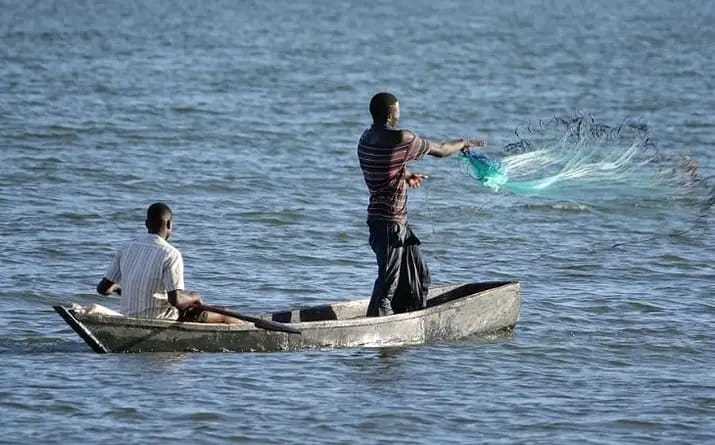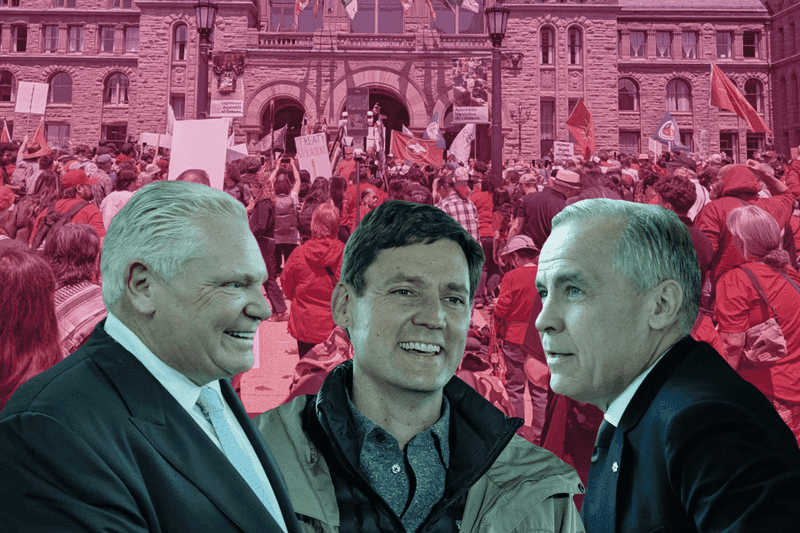
“Logistics emerges as much as the science of loss prevention as the science of moving property through the emptiness, of making the world as it travels by filling it…This is converting everything in its path into a coordinated time and space for ownership… it is for this reason that we can say logistics is the white science.” Stefano Harney and Fred Moten, All Incomplete
When the term “food security” was first used, individual people didn’t go hungry – nation states did. The grammar of who could go hungry and who, therefore, might fix hunger was codified at the zenith of the NEIO, and its attempts to address the 1970s polycrisis. The term “food security” first appears in its modern form after the United Nations World Food Conference in Rome in 1974. Citing “the Declaration and the Programme of Action on the Establishment of a New International Economic Order and Economic and Social Council resolution 1911 (LVII) of 2 August 1974”, among a range of other commitments, the United Nations urged food producing and consuming countries to together ensure: the availability at all times of adequate world food supplies of basic foodstuffs to sustain a steady expansion of food consumption and to offset fluctuations in production and prices.
A World Food Conference was made necessary by a cascading series of disasters that ought to look familiar. The economic orthodoxies that had governed the world had been radically ruptured by crisis. In the late 1960s and early 1970s, the seismic transformations involved the oil price shock, inflation and, crucially, the US abandoning of the gold standard, the bedrock monetary policy for all under US hegemony between 1944 and 1971.
The global economy convulsed and famine raged, most notably in the Sahel region. The US’s abrupt monetary and fiscal transformations in response to the global crisis provoked in Third Worldists the same shock as many experienced when 21st century neoliberal governments in the Global North started paying workers to stay at home and providing social services for free under the emergency: wait, they can do that? And if they can do that, why can’t we do this?
The ‘this’ was the New International Economic Order, and the ‘we’ was the nation-state. Hence, the understanding of food security as a thing experienced not by individuals but by nations.
Although food security concerned policy makers by its absence, achieving a world that was fully food secure appeared eminently possible. The intellectual underpinnings of a global economy that shifted away from supply chains extracting value from the Global South to the Global North had long been in place: the 1955 Bandung conference had consecrated Third Worldism, a moment in which post-colonial states the world over demanded a seat at the international table. International institutions existed too. Although an International Trade Organization – with mandates to improve the lot of workers and former colonies – was successfully watered down by the United States to become a less expansive General Agreement on Tariffs and Trade, organizations like the United Nations Conference on Trade and Development had been formed in 1964, with more ambitious goals to use trade for national development.
Such moves were allowed and entertained by the Global North in part because it was understood that, in the long run, the price of raw commodities would fall. To manage the decline in prices, UNCTAD fostered a range of international commodity agreements that provided a modicum of stability in some of the products around which colonists had long built supply chains: cocoa, tin, rubber, coffee and sugar. Flows along supply chains, previously built through empire and capital, were, at least temporarily, put under public control.
The New International Economic Order diagnosed the subservient position of the Third World, and offered a roadmap for economic growth that required the reconfiguration of power and international economics, with prescriptions that seem eminently sensible today. Allow countries in the Global South to use their own resources as they see fit, rather than having them extracted by their former colonists; when foreign capital comes sniffing, subject that capital to local control; insist that countries from the Global North share their technology; etc.
These ideas still matter, and remain largely unrealised. In response to concerns that his electric car empire ran up against Bolivian goals for self-determination over the fate of its lithium resources, Elon Musk offered “We will coup whoever we want! Deal with it.” With characteristic candour, Musk says the quiet part out loud in what Thea Riofrancos describes as the security-sustainability nexus.
Capital controls, a neoliberal bugbear consistently attacked by the IMF, would have blunted the disastrous effects of the 1990s Asian financial crisis. Vaccine apartheid, and the vicious licensing agreements that prevent industry in the Global South from manufacturing Covid vaccines, ensure that the pandemic will continue for the world’s poor.
So if the tenets of the NIEO have only proven more true with time, why were they never successfully implemented? It’s not as if the institutions of the NIEO have fallen silent. Wake Up Before It Is Too Latei, UNCTAD’s 2013’s report calling for sustainable agriculture, had it been heeded, would have radically transformed food systems, setting the world on a path that might have averted the food crises of the 2020s. The alarm was rung. It’s just that national bourgeoisies hit the snooze button.

While the failure to transform the world system is attributable to many factors, it is debt, and the debt crises of the 1970s and 1980s, that put paid to any hopes that the Third World would be able to form a cohesive bloc to champion this new economic order. Absent comprehensive debt relief, countries in the Global South are committed to sticking to systems of production that exploit their resources and workers. Debt keeps the Third World chained to the old order — and the chains are heavy. As Philip Alston, UN Special Rapporteur on Extreme Poverty notes,
In 2019, thirty OECD countries provided $152.8 billion [in Overseas Development Aid], in the form of grants or low-interest loans. While such funds are vital, they pale in significance against the overall balance sheet. Low and middle-income countries pay $756 billion annually in principal repayments and $213 billion in interest on an overall external debt of $7.8 trillion.
There has not, however, been a call for a shrugging off of debt peonage from the bourgeoisies of the Global South. There’s altogether too much profit in it, and each wants a share.
In part, the problem of disentangling the reasons for the NIEO’s failure returns us to grammar. The ‘we’ in the international economic order is a problem. It’s hard to pick a single quotable passage from Franz Fanon’s Pitfalls of National Consciousness in The Wretched of the Earth, because it is relevant in its entirety. But if one were forced to choose, perhaps this might offer the most painful judgment of the NEIO:
“as soon as independence is declared, far from embodying in concrete form the needs of the people in what touches bread, land and the restoration of the country to the sacred hands of the people, the leader will reveal his inner purpose: to become the general president of that company of profiteers impatient for their returns which constitutes the national bourgeoisie.”
The fate of the NIEO was to have its component states pitted against one another, brought low by debt, to have individuals bought off and movements for change crushed. The dividend: decades after the NIEO, the Forbes billionaires list has representatives from every country that had once led the charge for a transformed global economy (even, from Algeria, Issad Redrab, whose $5.1bn comes from the sugar industry).
If not the nation state as the vehicle for a future economic order, convened at the United Nations, then what? The evolution of the term ‘food security’ offers some hope.
The United Nations 1975 definition morphed, and was supplemented through the 1980s, with the notion that perhaps the proper unit of analysis for hunger wasn’t the nation, but the household and, increasingly, the individual. It was a neoliberal ontological shift. Not by accident, one of the earliest attempts at a new definition was hazarded in a 1986 World Bank document suggesting that “Food security is access by all people at all times to enough food for an active, healthy life.”
While this may sound like progress, note that individual nation state decisions don’t matter here. In fact, no-one’s decision matters. Under neoliberalism, access to food is a sufficient condition.
The problem, of course, is that you can be food secure in prison. ‘Access’ isn’t the same thing as ‘power over’ — which is why the international peasant movement La Via Campesina offered in 1995 a different concept: food sovereignty. In that definition, food sovereignty was “the right of each nation to maintain and develop its own capacity to produce its basic foods respecting cultural and productive diversity.”
Food sovereignty came in response to the economics of agriculture in the WTO, particularly in the ways that the EU and US were allowed to keep their extensive agricultural subsidies while the rest of the world wasn’t. By 2007, that nation-centric focus had been iterated, by years of debate within La Via Campesina’s constituent movements, into a subtler definition:
Food sovereignty is the right of peoples to healthy and culturally appropriate food produced through ecologically sound and sustainable methods, and their right to define their own food and agriculture systems. It puts those who produce, distribute and consume food at the heart of food systems and policies rather than the demands of markets and corporations.
Here’s where the grammar lesson pays off. ‘Peoples’ doesn’t sound like it’s substantially different from ‘nation-state’, but it can be. When national bourgeoisies stand ready to betray the nation, then ‘people’ is a signifier waiting to be filled by struggle. It is through movements of the working class, those working the supply chain, who can and should be crafting the next economic order. The geography of ‘people’ is defined by movement politics, and the nation-state isn’t an ally, but a zone of permanent contest.
An organization that understands what it takes to enact a future version of the NEIO is the Brazil’s Landless Workers Movement, Movimento dos Trabalhadores Rurais Sem Terra (MST). Brazil wasn’t part of the original NEIO because it was, from 1964 to 1985, a US-supported military dictatorship. Brazil’s nation-state wasn’t representative of the people. It was governed instead by generals who understood themselves as custodians of a national destiny that could in no way lead to socialism. Since the end of dictatorship, Brazil’s democratically elected governments have historically represented bourgeois priorities (with the arguable exception of Lula’s presidency), with Bolsonaro’s fascist alliances representing an ongoing threat, despite recent electoral defeat. If incipient nationalist authoritarianism, stemming from failed neoliberal responses to the 2008 financial crisis sounds familiar, it should. Brazil’s recent experience mirrors far too many states.
The MST’s activism offers an antidote. The nation-state has never been a permanent ally of the nearly one million landless people who have organized to occupy unused land to grow food for themselves and their communities. Through what scholar Rebecca Tarlau calls ‘contentious co-governance’, the state has been made to attend to the material needs of the poor. Through resistance, entryism, protest, and politics, the MST has secured victories against a usually violently hostile government to defend land, and create food systems that feed the poor. The MST’s example is one from which movements of the poor around the world are already learning, filling the idea of ‘the people’ not with tropes of national purity, but with calls for solidarity.
Again, the payoff of a new grammar of ‘peoples’ comes in the recognition that the state isn’t some permanent beacon of hope and goodness, but a site of struggle. Understanding this can lead to realistic hope. A grammar of permanent struggle for the state has the merit of honesty: it points to the need for a contingent, fragile, on-going, movement-building process that dreams and builds a new economic order, rather than asking states, please, to do the right thing. The old economic order stopped at the nation state. In this fissiparous new sovereignty, at the boundaries between overlapping movements, there is no protocol except solidarity and care, and a permanent campaign to bend states to the needs of the poor.
Let us not pretend for easy victories. Bourgeois states have built an international economic architecture that has destroyed the planet, and siphoned wealth from the poorest to the richest. Undoing that is the work of lifetimes to come. A reconstructed NEIO will look different from its forebear because the political architecture of liberation and solidarity, of reparation and reconstruction are different now from the 1970s. Does that mean that people outside movements aren’t sovereign? Yes, which is to say: no less than they are now. Is the outcome guaranteed? Certainly not, if the array of increasingly nationalistic bourgeoisies can help it. Yet such is the task ahead - to imagine a new economic order, then alongside pessimism of the intellect, we’ll need optimism of the will.






